Why Spain is a great place for kids
Choosing the city that's right for you
Choosing the visa that's right for you
More than just great weather
Why Spain provides a better quality of life
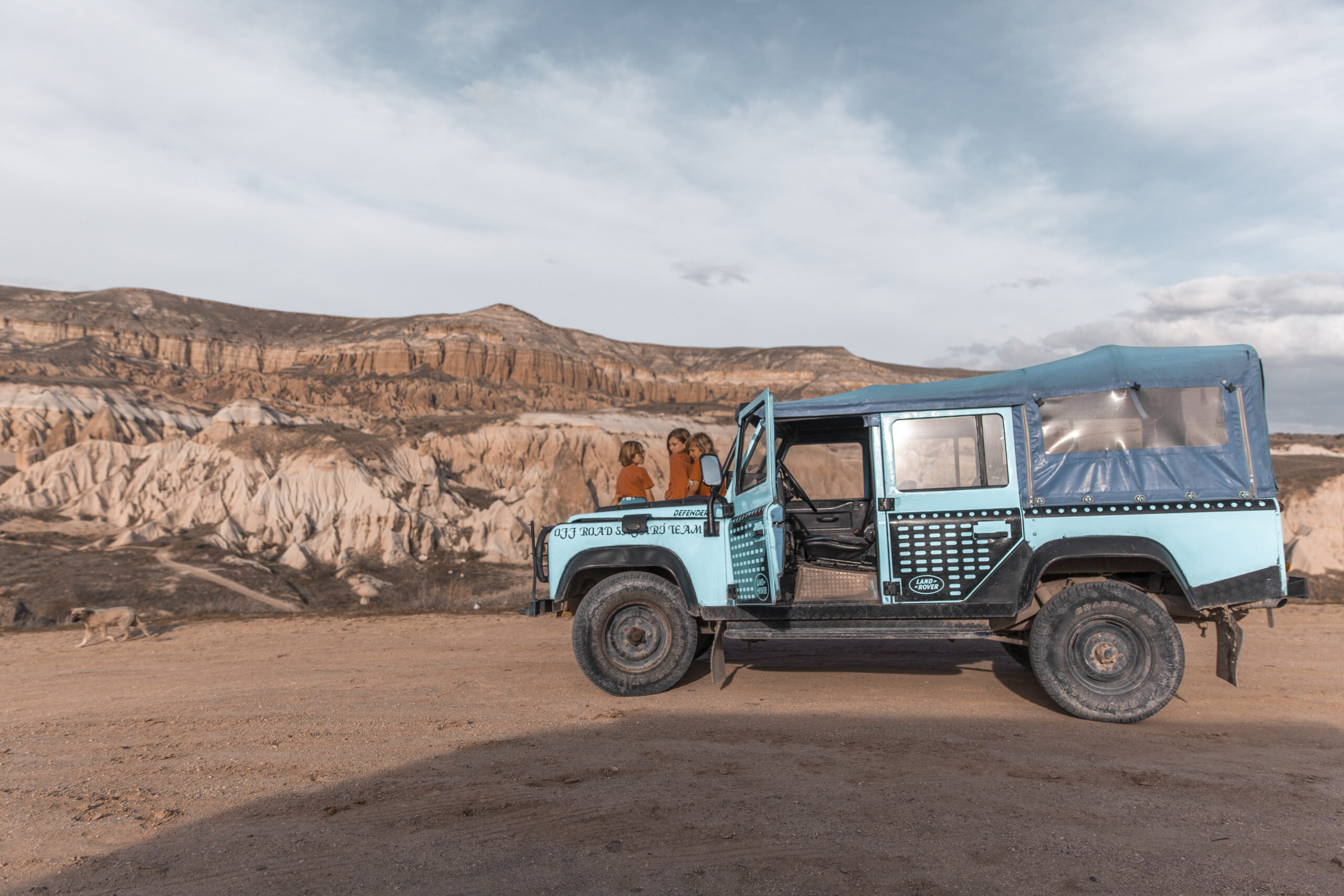
How we Plan
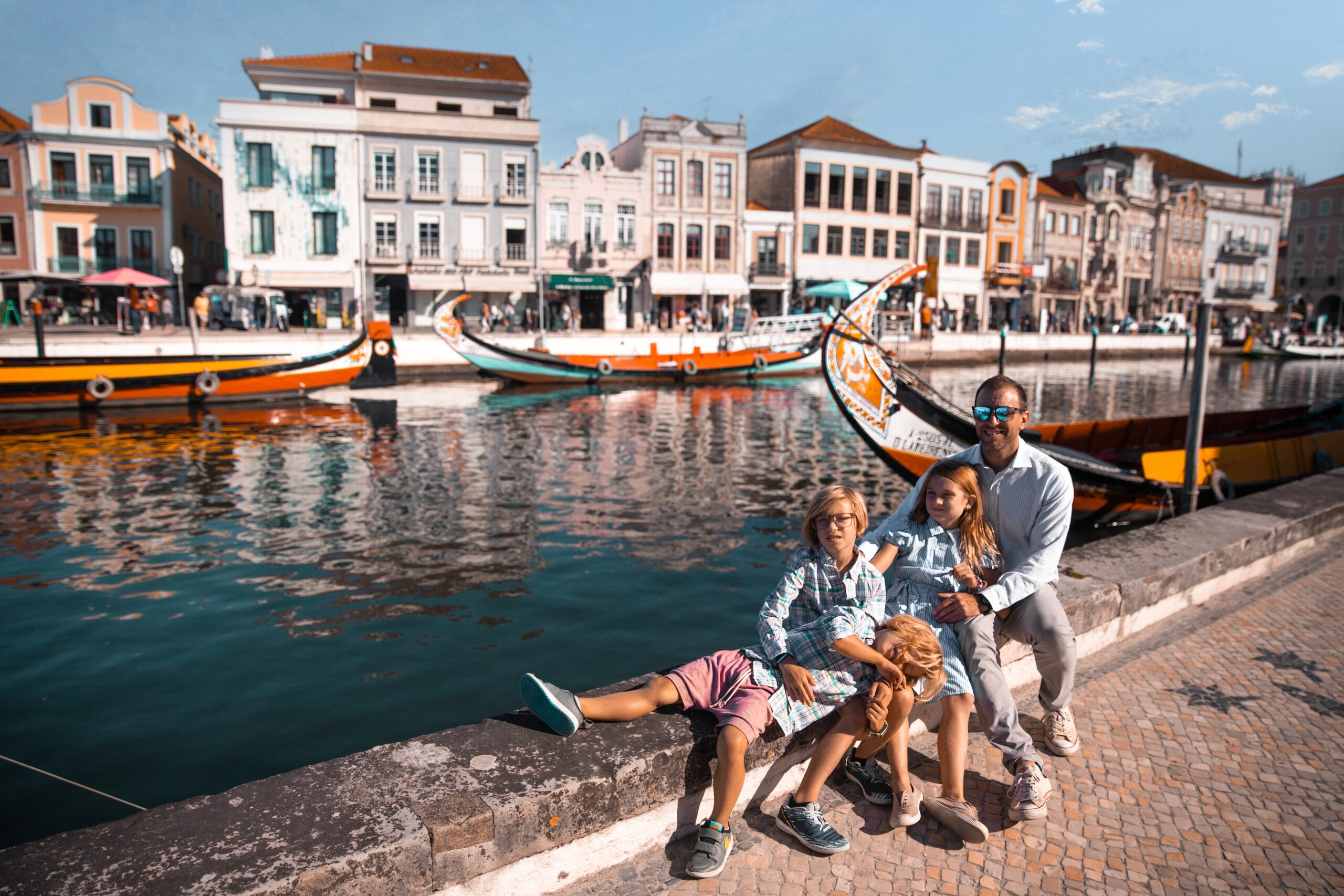
What we pack
Choosing Travel Insurance
Book Your Hotel
with Booking.com
Book Your Car
with RentalCars.com
Book Your Flight
with Skyscanner.com
Book Your Tour
with GetYourGuide.com
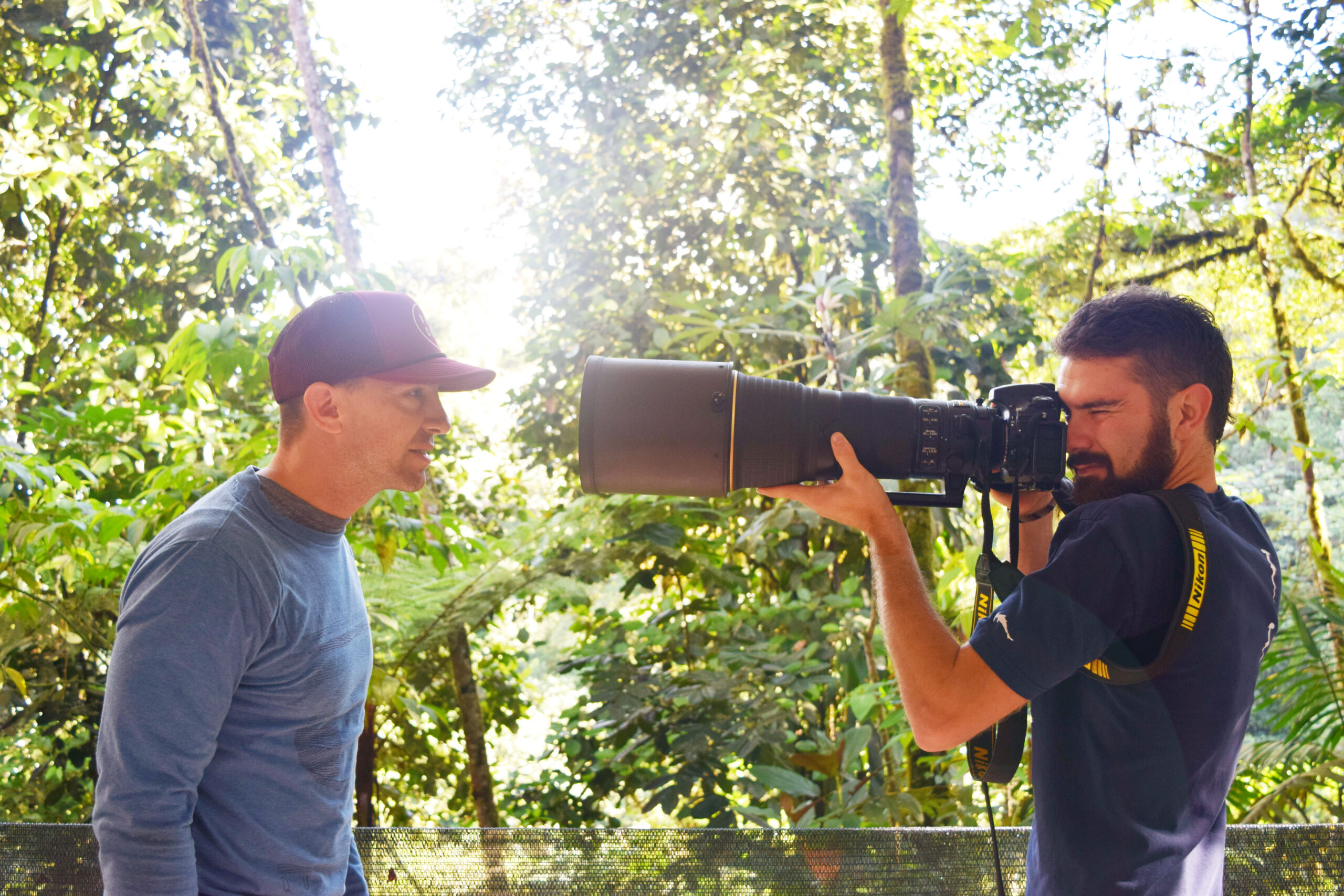
Our Camera Gear
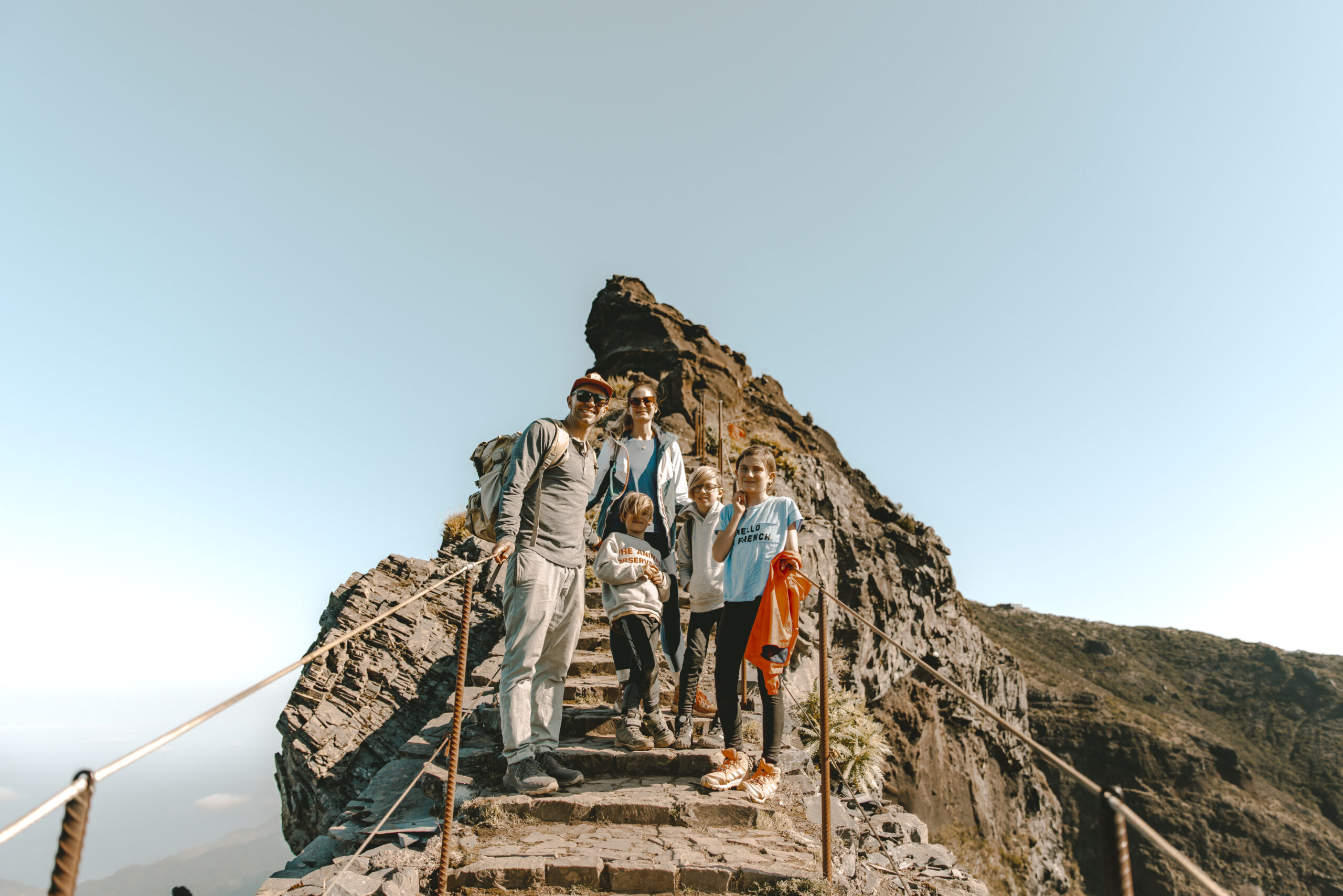
How We Fly
Choosing Your Destination
Family Guide to...
France
France, where iconic landmarks like the Eiffel Tower, majestic châteaux of the Loire Valley, and sun-kissed vineyards of Provence invite travelers to indulge in the art, culture, and gastronomy of a nation celebrated for its romance, sophistication, and joie de vivre amidst breathtaking scenery and vibrant cityscapes.
Map
Weather
Itineraries
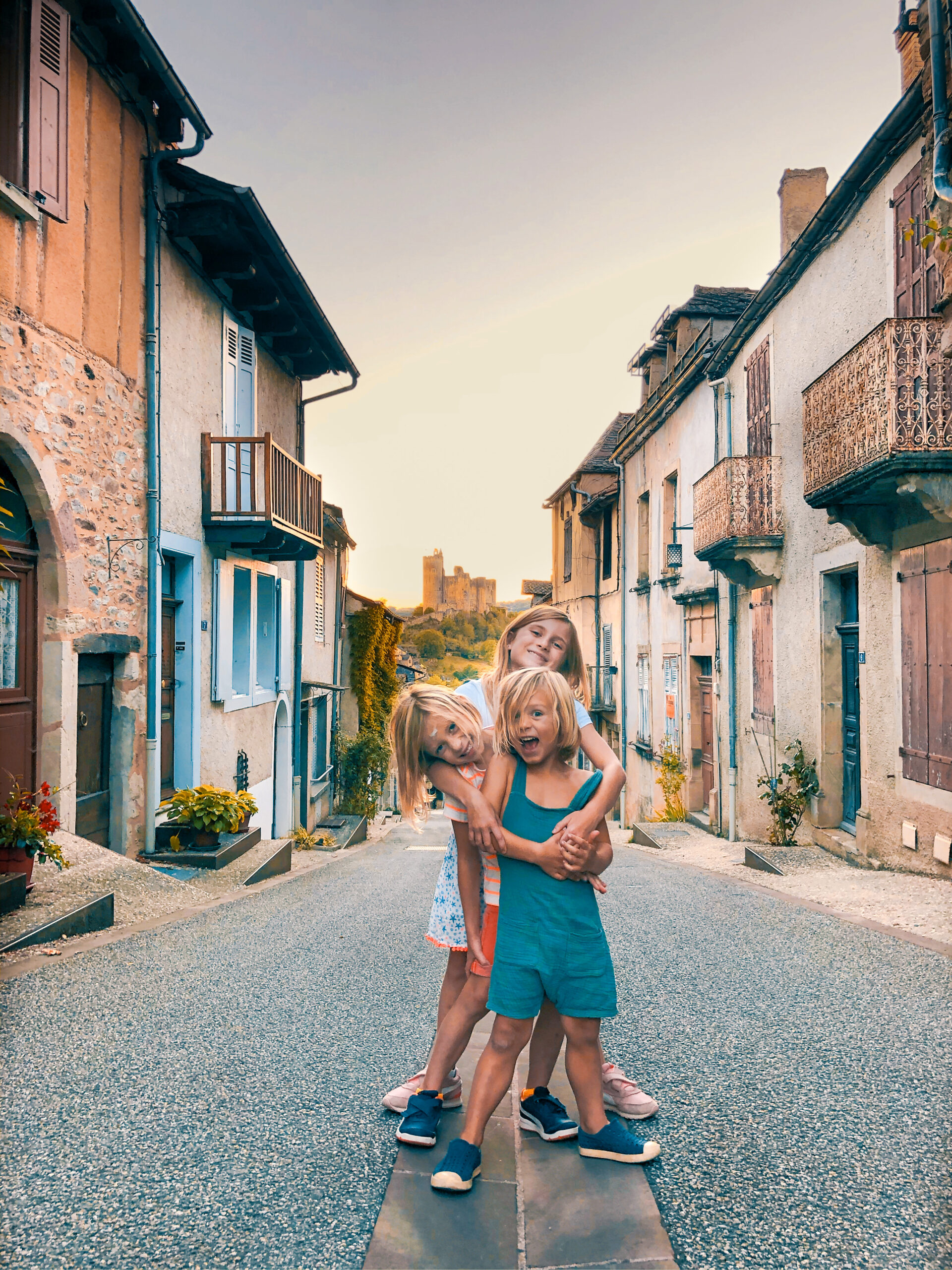
A Family Adventure in France: Exploring Enchanting Cities and Charming Villages
France is a country that effortlessly combines sophistication, history, and natural beauty, making it an ideal destination for families seeking an unforgettable adventure. From the iconic landmarks of Paris to the picturesque villages nestled in the countryside, there is no shortage of captivating experiences for all ages. This comprehensive guide will take you on a journey through some of France’s most enchanting cities and charming villages, with a focus on family-friendly activities and attractions.
Paris: The City of Light
Louvre Museum
No visit to Paris is complete without exploring the world-renowned Louvre Museum. Home to some of the most famous works of art in history, including the Mona Lisa and the Venus de Milo, the Louvre offers a fascinating journey through time and culture. To make the experience more engaging for children, consider booking a family-friendly guided tour or downloading an interactive app that offers kid-friendly explanations of the artwork.
Admission: €17 for adults, free for children under 18 Hours: 9:00 AM – 6:00 PM (closed on Tuesdays)
Disneyland Paris
For a magical day that your children will never forget, head to Disneyland Paris. This enchanting theme park features classic Disney attractions, live shows, and beloved characters from your favorite stories. Divided into two parks – Disneyland Park and Walt Disney Studios Park – there is plenty to explore for all ages.
Admission: Varies depending on ticket type and season Hours: Vary by season, typically 10:00 AM – 8:00 PM or later
Other Family-Friendly Activities in Paris
- Visit the Eiffel Tower and take in the breathtaking views of the city
- Explore the vibrant Montmartre neighborhood and watch artists at work
- Take a leisurely boat ride along the Seine River
- Discover the wonders of science at the Cité des Sciences et de l’Industrie
- Enjoy a picnic and a carousel ride at the charming Luxembourg Gardens
Top Five Restaurants in paris
Le Meurice is an exquisite two-Michelin-starred restaurant located within the luxurious Le Meurice Hotel. Under the culinary direction of the renowned chef Alain Ducasse, the restaurant offers a sumptuous experience with a menu that emphasizes simplicity and seasonal ingredients. The opulent decor, inspired by the Salon de la Paix at the Château de Versailles, adds to the extraordinary dining experience.
Located in the elegant Place des Vosges, L’Ambroisie is a three-Michelin-starred restaurant helmed by chef Bernard Pacaud. Known for its classic French haute cuisine, the restaurant offers dishes that are meticulously prepared and beautifully presented. The intimate setting and exceptional service make it a must-visit for gourmets.
Septime is a contemporary bistro that has earned a Michelin star for its innovative approach to modern French cuisine. Head chef Bertrand Grébaut focuses on fresh, locally sourced ingredients to create a dynamic and ever-changing menu. The relaxed atmosphere and open kitchen add to the restaurant’s charm.
Perched on the second floor of the Eiffel Tower, Le Jules Verne offers a dining experience like no other. Under the guidance of chef Frédéric Anton, this Michelin-starred restaurant combines breathtaking views with refined French cuisine. The sophisticated dishes and stunning backdrop make it a favorite for special occasions.
Located on the banks of the Seine, Guy Savoy’s eponymous restaurant is a temple of modern French gastronomy. With three Michelin stars, the restaurant is celebrated for its exquisite dishes and impeccable service. Chef Guy Savoy’s philosophy of “cuisine is the art of instantaneously transforming produce suffused with history into happiness” is evident in every bite.
Top Five hotels in paris
The Peninsula Paris is a luxurious hotel located just steps away from the Arc de Triomphe. Combining classic Parisian charm with modern amenities, it offers elegant rooms and suites, a rooftop restaurant with panoramic views, and a world-class spa. The hotel’s refined atmosphere and impeccable service make it a standout choice for travelers seeking both comfort and sophistication.
Le Meurice, another iconic hotel in Paris, combines 18th-century opulence with modern comfort. Situated near the Louvre and Tuileries Garden, it features lavishly decorated rooms, two Michelin-starred restaurants, and a luxurious spa. The hotel’s rich history and association with renowned artists add to its allure.
Housed in a former royal residence, the Shangri-La Hotel offers an unparalleled experience of luxury and sophistication. Located near the Eiffel Tower, it boasts stunning views, beautifully appointed rooms, and exceptional dining options, including a Michelin-starred restaurant. The hotel’s blend of Asian hospitality and French art de vivre creates a unique and memorable stay.
The Four Seasons Hotel George V is a beacon of elegance and grandeur. Located just steps from the Champs-Élysées, it features luxurious rooms and suites, three Michelin-starred restaurants, and a renowned spa. The hotel’s exquisite flower arrangements and art collection enhance its sophisticated ambiance.
Hôtel Plaza Athénée is synonymous with Parisian glamour and style. Situated on Avenue Montaigne, the hotel offers stunning views of the Eiffel Tower, luxurious accommodations, and exceptional dining, including the five-star Alain Ducasse au Plaza Athénée restaurant. Its chic decor and impeccable service make it a favorite among discerning travelers.
Annecy: The Venice of the Alps
Nestled in the heart of the Haute-Savoie region, Annecy is a picturesque town that enchants visitors with its stunning lake, winding canals, and charming medieval architecture. Often referred to as the “Venice of the Alps,” Annecy offers a perfect blend of natural beauty and rich history.
Explore the Old Town
Wander through the narrow, cobblestoned streets of Annecy’s Old Town, where you’ll discover colorful buildings, quaint shops, and charming cafes. Don’t miss the chance to visit the Palais de l’Isle, a 12th-century castle that sits on a small island in the Thiou Canal. Today, the castle houses a museum that showcases the history and culture of the region.
Admission to Palais de l’Isle: €5.50 for adults, €3 for children aged 6-18 Hours: Vary by season
Enjoy Lake Annecy
Lake Annecy, known for its crystal-clear waters and stunning mountain backdrop, offers a wide range of family-friendly activities. Take a leisurely stroll or bike ride along the lakefront path, go for a swim in the refreshing water, or rent a pedal boat for a fun-filled adventure on the lake.
Pedal boat rental: Approximately €15-20 per hour
Other Family-Friendly Activities in Annecy
- Visit the Jardins de l’Europe, a beautiful park with playgrounds and a carousel
- Explore the Annecy Castle, which offers stunning views of the town and lake
- Take a day trip to the nearby Gorges du Fier, a spectacular canyon with a suspended walkway
- Indulge in delicious local specialties like tartiflette and raclette
Verdon Gorge: A Natural Wonder
The Verdon Gorge, located in the Provence-Alpes-Côte d’Azur region, is a breathtaking natural wonder that offers endless opportunities for outdoor adventure. Known for its stunning turquoise waters and towering limestone cliffs, the gorge is a must-visit destination for families who love nature and excitement.
Rent a Paddle Boat
One of the best ways to explore the Verdon Gorge is by renting a paddle boat. This fun and easy activity allows you to navigate the calm waters of the gorge at your own pace, taking in the magnificent scenery and enjoying quality time with your family. Paddle boats can be rented at various locations along the gorge, such as the Pont du Galetas or the Lac de Sainte-Croix.
Paddle boat rental: Approximately €20-30 per hour
Other Family-Friendly Activities in Verdon Gorge
- Go hiking on one of the many scenic trails that wind through the gorge
- Take a refreshing swim in the turquoise waters of the Lac de Sainte-Croix
- Visit the charming village of Moustiers-Sainte-Marie, known for its faïence pottery
- Explore the Valensole Plateau, famous for its stunning lavender fields (in bloom from June to August)
Najac: A Picturesque Medieval Village
Perched on a rocky outcrop in the Aveyron department, Najac is a captivating medieval village that seems frozen in time. With its winding streets, half-timbered houses, and imposing castle, Najac is a perfect example of the many enchanting villages that dot the French countryside.
Visit the Najac Castle
The Najac Castle, built in the 13th century, is the village’s most prominent landmark. Situated at the highest point of the village, the castle offers panoramic views of the surrounding countryside and the Aveyron River below. Explore the castle’s well-preserved interior and learn about its fascinating history.
Admission to Najac Castle: €5 for adults, €2.50 for children aged 6-18 Hours: Vary by season
Other Family-Friendly Activities in Najac
- Wander through the charming streets of the village and admire the medieval architecture
- Visit the Maison du Gouverneur, a beautiful 15th-century house that now serves as a museum
- Take a scenic hike along the GR 36 trail, which passes through the village
- Enjoy a picnic by the Aveyron River and take in the stunning views
Saint Antonin Noble Val: A Charming Town with a Rich History
Located in the Tarn-et-Garonne department, Saint Antonin Noble Val is a delightful town that combines rich history, stunning architecture, and natural beauty. With its medieval streets, lively Sunday market, and picturesque setting along the Aveyron River, Saint Antonin Noble Val is a must-visit destination for families exploring the region.
Explore the Medieval Town Center
Take a stroll through the winding streets of Saint Antonin Noble Val’s medieval town center, where you’ll discover beautifully preserved half-timbered houses, charming squares, and historic landmarks like the Maison Romane, a 12th-century Romanesque house that now serves as a museum.
Admission to Maison Romane: €3 for adults, free for children under 18 Hours: Vary by season
Other Family-Friendly Activities in Saint Antonin Noble Val
- Visit the lively Sunday market, one of the oldest and most picturesque in the region
- Take a canoe or kayak trip down the Aveyron River and enjoy the stunning scenery
- Explore the nearby Gorges de l’Aveyron, a beautiful canyon with hiking trails and scenic viewpoints
- Visit the Grotte du Bosc, a fascinating cave system with stunning rock formations
The Alps: A Playground for Outdoor Adventure
The French Alps, spanning across several regions in the eastern part of the country, offer a vast playground for outdoor enthusiasts and families seeking adventure. With its stunning mountain landscapes, crystal-clear lakes, and charming alpine villages, the Alps provide a perfect backdrop for a wide range of activities throughout the year.
Family-Friendly Activities in the Alps
- Go hiking on one of the many scenic trails suitable for all skill levels
- Take a cable car ride to the top of a mountain and enjoy breathtaking panoramic views
- Visit a traditional alpine cheese farm and learn about the cheese-making process
- Enjoy a refreshing swim in one of the many beautiful lakes, such as Lac d’Annecy or Lac de Serre-Ponçon
- In winter, go skiing or snowboarding at one of the numerous world-class ski resorts
Charming Alpine Villages
The French Alps are dotted with picturesque villages that offer a perfect blend of natural beauty, rich culture, and warm hospitality. Some notable villages to visit include:
- Chamonix-Mont-Blanc: A renowned ski resort town with stunning views of Mont Blanc, the highest peak in the Alps
- Annecy: Known as the “Venice of the Alps,” this charming town boasts a stunning lake, winding canals, and a delightful Old Town
- Megève: A chic and charming village with a rich history, gourmet restaurants, and lovely boutiques
- Yvoire: A medieval village on the shores of Lake Geneva, famous for its beautiful flower displays and historic castle
The "Plus Beaux Villages de France" (The Most Beautiful Villages of France)
The “Plus Beaux Villages de France” is an association that recognizes and promotes the most beautiful and well-preserved villages in France. To be listed, a village must meet strict criteria regarding its architecture, heritage, and natural setting.
As of 2021, there are 168 villages that have been awarded this prestigious designation, scattered across various regions of France. Some notable examples include:
- Gordes (Provence-Alpes-Côte d’Azur): A stunning hilltop village with breathtaking views of the Luberon valley
- Riquewihr (Grand Est): A picturesque Alsatian village known for its colorful half-timbered houses and excellent wines
- Saint-Cirq-Lapopie (Occitanie): A charming medieval village perched on a cliff above the Lot River
- Rochefort-en-Terre (Brittany): A delightful village with flower-filled streets and a rich artistic heritage
Visiting these enchanting villages is a wonderful way to experience the authentic charm and beauty of rural France while enjoying a slower pace of life and discovering hidden gems along the way.
FAQ's
What are the main things to do with kids in France?
France offers a wide variety of activities and attractions that are great for kids. Here are some of the main things to do with children in France:
1. Visit theme parks: France has several famous theme parks, such as Disneyland Paris, Parc Astérix, and Futuroscope.
2. Explore castles and palaces: Many castles and palaces, like the Palace of Versailles, Château de Chambord, and Carcassonne, offer family-friendly tours and activities.
3. Visit zoos and aquariums: Notable ones include the Paris Zoological Park, Beauval Zoo, and Nausicaá National Sea Centre.
4. Enjoy beaches and water activities: France’s coastlines, like the French Riviera and the beaches of Normandy, offer plenty of opportunities for swimming, sandcastle building, and water sports.
5. Discover science museums: The Cité des Sciences et de l’Industrie in Paris and the Cité de l’Espace in Toulouse are great for interactive learning experiences.
6. Attend festivals and events: Many cities host family-friendly festivals, such as the Festival of Lights in Lyon and the Puppet Festival in Charleville-Mézières.
7. Visit kid-friendly museums: The Louvre in Paris, for example, offers treasure hunts and workshops for children.
8. Explore nature: France has numerous national parks, gardens, and outdoor activities like hiking, biking, and horseback riding that families can enjoy together.
9. Take a river cruise: Cities like Paris and Strasbourg offer scenic river cruises that can be a relaxing way to sightsee with kids.
10. Visit historical sites: Many historical landmarks, such as the Eiffel Tower, the Arc de Triomphe, and the Mont-Saint-Michel abbey, can be exciting and educational for children.
What is France famous for?
France is famous for many things, including:
1. Eiffel Tower: The iconic structure in Paris, built in 1889, is a global cultural icon of France.
2. Art and architecture: France has a rich artistic heritage, with renowned museums like the Louvre and famous works by artists such as Monet, Renoir, and Van Gogh.
3. Fashion: Paris is considered one of the world’s fashion capitals, home to many high-end designer brands and fashion events.
4. Gastronomy: French cuisine is world-renowned, with dishes like croissants, baguettes, escargot, and coq au vin. France is also famous for its wines and cheeses.
5. Literature: Many great writers, such as Victor Hugo, Molière, and Émile Zola, hail from France.
6. Historical figures: French history boasts influential figures like Napoleon Bonaparte, Louis XIV, and Joan of Arc.
7. Landmarks: In addition to the Eiffel Tower, France is home to famous landmarks like the Palace of Versailles, Notre-Dame Cathedral, and Mont-Saint-Michel.
8. Perfume: France is known for its perfume industry, with Grasse considered the world’s perfume capital.
9. Film: France has a significant cinematic history and hosts the prestigious Cannes Film Festival.
10. Luxury goods: Many renowned luxury brands, such as Chanel, Louis Vuitton, and Hermès, originated in France.
11. Beautiful landscapes: From the French Riviera to the Alps and the lavender fields of Provence, France is known for its diverse and picturesque landscapes.
These are just a few examples, as France’s cultural, historical, and artistic contributions are extensive and diverse.
What power plug type does France use?
France, like most other countries in Europe, uses Type C and Type E power plugs and sockets.
1. Type C: This is the standard European plug, also known as the Euro plug. It has two round pins and is ungrounded. This plug is used in most European countries and is compatible with Type E and Type F sockets.
2. Type E: This type, also known as the French plug, has two round pins and a hole for the socket’s male grounding pin. It’s similar to the Type C plug but has an additional grounding pin. This plug is commonly used in France, Belgium, Poland, and other countries.
The standard voltage in France is 230 V, and the standard frequency is 50 Hz. It’s important to note that some devices, particularly those from North America, might need a voltage converter in addition to a plug adapter to work safely in France.
Is France safe?
Yes, France is generally considered a safe country for both tourists and residents. However, like any other country, France has some safety concerns that visitors should be aware of:
1. Petty crime: Pickpocketing and bag snatching can occur in crowded tourist areas, on public transportation, and at major attractions. Visitors should remain vigilant and take precautions to safeguard their belongings.
2. Terrorism: France has been targeted by terrorist attacks in recent years. The French government has taken steps to enhance security measures, but visitors should remain aware of their surroundings and follow the advice of local authorities.
3. Scams: Some tourists may encounter scams, such as individuals offering to sell them goods or services at inflated prices. Be cautious when approached by strangers and always verify the legitimacy of any offers.
4. Protests and demonstrations: France has a history of protests and labor strikes, which can sometimes disrupt transportation and public services. While these events are generally peaceful, it’s best to avoid large gatherings and follow local media for updates.
5. Natural disasters: France can experience natural disasters such as flooding, wildfires, and avalanches in mountainous regions. Stay informed about weather conditions and follow the advice of local authorities.
Despite these concerns, millions of people visit France each year without incident. By taking common-sense precautions, staying informed, and remaining aware of your surroundings, you can minimize risks and enjoy a safe and pleasant visit to France.
What should travelers know about France?
When traveling to France, there are several important things to keep in mind:
1. Language: French is the official language. While many people in tourist areas speak English, it’s helpful to learn some basic French phrases.
2. Currency: France uses the Euro (€). Be sure to have some cash on hand, as not all places accept credit cards.
3. Etiquette: The French value politeness. Always greet people with “Bonjour” (hello) and “Au revoir” (goodbye). Use “Merci” (thank you) and “S’il vous plaît” (please) liberally.
4. Dining: French meals can be lengthy affairs. Restaurants typically serve dinner from 7:30 PM onwards. Many shops and businesses close for lunch breaks.
5. Tipping: Service is usually included in restaurant bills. Additional tipping isn’t necessary but is appreciated for excellent service.
6. Alcohol: The legal drinking age is 18. In France, it’s common to enjoy a glass of wine or beer with meals.
7. Dress code: The French tend to dress more formally than Americans. Dress nicely when dining out or attending cultural events.
8. Opening hours: Many businesses and attractions are closed on Sundays and some on Mondays. Always check opening hours in advance.
9. Smoking: Smoking is prohibited in enclosed public spaces like restaurants, cafes, and public transportation.
10. Transportation: France has an excellent public transportation system, including high-speed trains (TGV) and an extensive metro network in Paris.
11. Cultural attractions: France is home to many world-famous museums, historical sites, and architectural wonders. Book tickets in advance when possible.
12. Passport and visa: U.S. citizens need a valid passport to enter France, but a visa is not required for stays under 90 days. Rules may differ for other nationalities.
Remember, being respectful of local customs and making an effort to speak the language can go a long way in enhancing your travel experience in France.
What do I need to know before traveling to Nice France?
When planning a trip to Nice, France, consider the following:
1. Climate: Nice has a Mediterranean climate with mild winters and warm summers. The best time to visit is between May and October.
2. Beaches: Nice is famous for its pebble beaches. Bring water shoes for comfort and be prepared to rent a sun lounger or mat for sunbathing.
3. Language: While many people in Nice speak English, it’s always appreciated when visitors try to speak some French.
4. Cuisine: Nice is known for its cuisine, which includes dishes like Salade Niçoise, Ratatouille, and Socca (a chickpea pancake). Try local specialties at restaurants and markets.
5. Getting around: Nice has a good public transportation system, including buses and trams. The city is also walkable, especially in the old town (Vieux Nice).
6. Attractions: Some top attractions include the Promenade des Anglais, Castle Hill (Colline du Château), the Matisse Museum, and the Russian Orthodox Cathedral.
7. Day trips: Nice is a great base for exploring the French Riviera. Consider visiting nearby towns like Villefranche-sur-Mer, Eze, Monaco, and Cannes.
8. Accommodations: Book accommodations in advance, especially during peak season. Consider staying in the old town or near the beach for easy access to attractions.
9. Safety: Nice is generally a safe city, but take standard precautions to protect your belongings from pickpocketing, especially in crowded tourist areas.
10. Airport: Nice Côte d’Azur Airport is the main airport serving the city. It’s connected to the city by bus and tram.
By keeping these points in mind and doing some additional research on local customs and events, you’ll be well-prepared for an enjoyable visit to Nice.
What are the requirements to enter France?
The requirements to enter France depend on your nationality, the purpose of your visit, and the length of your stay. Here are the general requirements for U.S. citizens:
1. Passport: You must have a valid passport with at least three months’ validity beyond your planned date of departure from the Schengen Area.
2. Visa: For stays up to 90 days within a 180-day period, U.S. citizens do not need a visa for tourism or business purposes. For longer stays or other purposes, you may need to apply for a specific visa.
3. Schengen Entry Requirements: France is part of the Schengen Area, which means you’ll need to meet the Schengen entry requirements. This includes having sufficient funds, a return ticket, and not posing a security or public health risk.
4. COVID-19 Regulations: As of August 2023, COVID-19 regulations for entry may vary. Check the latest guidelines from the French government and your airline before traveling.
5. Health Insurance: While not mandatory, it’s highly recommended to have comprehensive travel health insurance that covers medical expenses and evacuation.
6. Customs Declaration: You may need to declare goods you’re bringing into France, especially if they exceed certain value thresholds or quantities.
7. Proof of Accommodation: In some cases, you may be asked to provide proof of accommodation, such as a hotel reservation or an invitation letter from a host in France.
Note that entry requirements can change. Always check with the French Embassy or Consulate in your country for the most up-to-date information before your trip.
It’s also important to note that as of May 2023, the European Travel Information and Authorization System (ETIAS) is not yet operational. Once implemented, U.S. citizens planning to visit France and other Schengen countries for short stays will need to obtain an ETIAS authorization before their trip.
What food can you take into France?
When entering France, there are restrictions on the food items you can bring with you. These rules are in place to protect public health, prevent the spread of pests and diseases, and comply with EU regulations. Here’s what you need to know:
1. Meat and dairy products: You cannot bring meat, milk, or dairy products into France from outside the EU unless they are from an approved country and meet specific requirements.
2. Fruits and vegetables: You can bring small quantities of fruits and vegetables for personal consumption, but they must be free from pests and soil.
3. Plants and plant products: Plants and plant products, including seeds, require a phytosanitary certificate and may be subject to additional restrictions.
4. Fish: You can bring up to 20kg of fish per person, but certain species may be restricted.
5. Animal products: Items made from protected animals, such as ivory or tortoise shell, are prohibited.
6. Alcohol and tobacco: You can bring alcohol and tobacco for personal use, but there are limits. For example, you can bring up to 4 liters of wine and 16 liters of beer.
7. Packaged foods: Commercially packaged foods that don’t contain meat or dairy are generally allowed, but it’s best to check the ingredients.
8. Baby food: You can bring enough baby food for the duration of your journey.
9. Medicines: You can bring personal medications, but if they contain controlled substances, you’ll need a prescription and a letter from your doctor.
It’s always best to check the most current regulations before your trip, as rules can change. When in doubt, declare any food items you’re carrying to customs officials. If an item is prohibited, it will be confiscated and destroyed, and you may face a fine.

